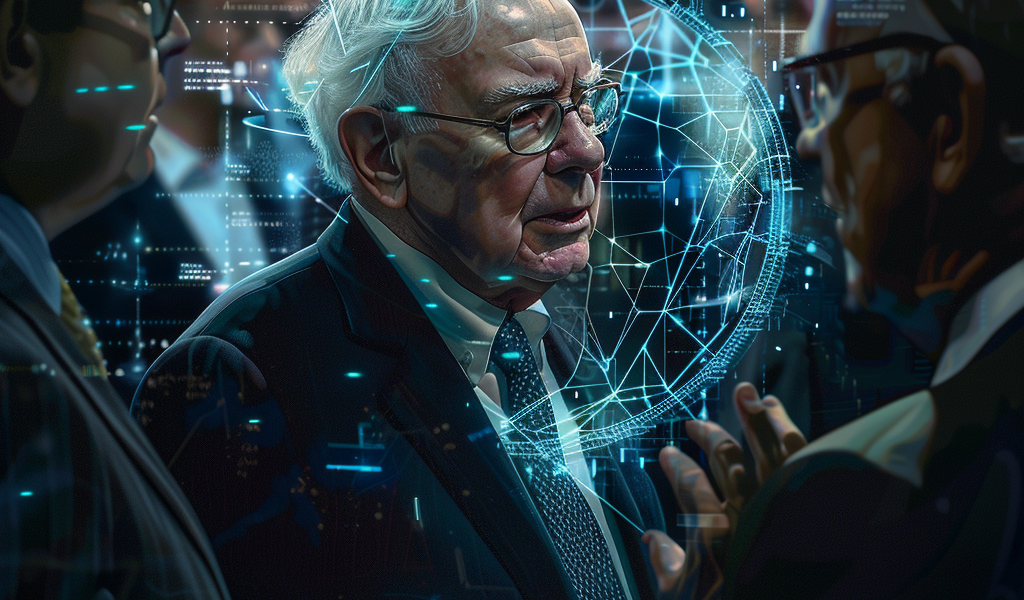Warren Buffett, the legendary investor, recently discussed the impact of artificial intelligence (AI) at the Berkshire Hathaway annual meeting. Despite his admission of not being well-versed in AI, Buffett emphasized the profound nature of this technology, likening it to a ‘genie’ with potential disastrous consequences once released.
During the event, Buffett fielded numerous questions about AI, highlighting concerns ranging from the potential for massive scamming facilitated by AI to the comparison with the dawn of nuclear weapons and their unintended repercussions. One of the key questions that Buffett raised is the uncertainty surrounding AI’s impact on human work and leisure activities, a puzzle that has baffled economists for decades.
Buffett’s investment strategy has traditionally steered clear of technologies he doesn’t fully understand, with his notable stake in Apple driven more by its consumer success than its technological aspects. However, the prevalence of AI as a topic of interest among shareholders forced Buffett to address its implications at the meeting.
While acknowledging the transformative potential of AI, Buffett also expressed concerns about its unforeseen consequences and risks to humanity. He highlighted the significant changes AI could bring to individuals’ daily lives, emphasizing the challenge of determining how society will utilize the increased leisure time that AI might create.
Reflecting on the insights of influential economists like John Maynard Keynes, Buffett underscored the complexity of predicting AI’s societal impact. As AI continues to evolve rapidly, the questions it raises about work, leisure, and human progress remain at the forefront of discussions among experts and investors alike.





